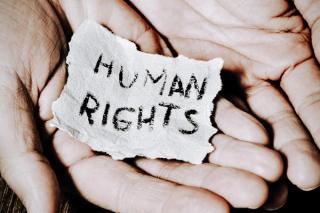
ESG Insights: Reaffirming the Importance of Labour and Human Rights
- Post Date
- 19 May 2022
- Read Time
- 4 minutes

December 10th marks International Human Rights Day and commemorates 72 years since the United Nations General Assembly adopted the Universal Declaration of Human Rights.
The Declaration stipulates the rights and freedoms of all human beings, regardless of race, gender, ethnicity, language, political opinion, and religious belief, and puts forth a set of human rights values and standards that we continue to respect and employ to this day.
Today, as we reflect on the progress made on promoting and improving human rights globally, it is also important to acknowledge areas in which human rights are still very much at risk and identify ways to reduce and ultimately eradicate those risks.
An Important Day
In 2011, the United Nations published the UN Guiding Principles (UNGPs) on Business and Human Rights which provided a standardised framework for how states and business enterprises can protect the human rights of individuals and communities.
On the heels of the UNGPs, an increasing number of national hard laws (e.g. California Transparency in Supply Chains Act, 2012; UK Modern Slavery Act, 2015; French Corporate Duty of Vigilance Law, 2017) have been driving yet greater attention on the responsibility of businesses to assess, monitor, and improve labor and human rights conditions in their operations and supply chains.
There is also a greater push from public and civil society organisations demanding companies are held more accountable for human and labour rights violations within their supply chain.
For example, the tech and manufacturing industry is particularly under the spotlight to ensure they source minerals in an ethically responsible way. UNICEF estimates that about 40,000 children work as artisanal miners in the Democratic Republic of Congo (DRC), many of whom extract cobalt. It is minerals like cobalt and lithium, sourced from the DRC and other countries in Africa and South America, which power the PC, laptop, tablet, or smart phone from which you are reading this article.
While many companies are reacting to this increased scrutiny and employing international guidance such as the UNGPs to put in place supplier codes of conduct and develop policies pertaining to the management of human rights and conflict minerals; human rights risks are still most present within the supply chain.
There's Still Ongoing Issues
Some of these common risks include substandard and unsafe working conditions, discrimination, and different forms of modern slavery such as forced and child labour. These topics are even still relevant for companies, like many in the U.S. for example, who are reshoring or bringing parts of their supply chains home.
There is no better time than today, on International Human Rights Day, for businesses to reaffirm their commitment to human rights and start implementing proactive measures, such as: conducting a Human Rights Due Diligence exercise; developing processes to monitor supply chains over the long-term; undertaking social supply chain mapping; completing labour and working conditions assessments; and investing in a shared value approach with the workforce and local communities.
Implement a Proactive Approach
A proactive rather than a reactive approach can result in a win-win situation – realising benefits for both the company, its workforce, and the community it which it operates, including reducing reputational risk and financial loss, boosting consumer brand and employee loyalty, building stakeholder trust, and enhancing access to capital. All of this while protecting human and labour rights and helping achieve positive societal impacts.
This 10th of December is an opportunity to reaffirm the importance of labour and human rights – the right to decent wages, safe working conditions, non-discrimination, equal opportunity, and the elimination of forced and child labour, and in the context of re-imagining the world we want to live in – ensuring all companies become as accountable, transparent and responsible as they can be.
These are values and services at the core of SLR’s ESG approach. We offer tailored and pragmatic solutions to manage human and labour risks and impacts for your business. To learn more about how your business can improve its approach with regards to labour and human rights, please get in touch.
See SLR’s Modern Slavery Statement here.

